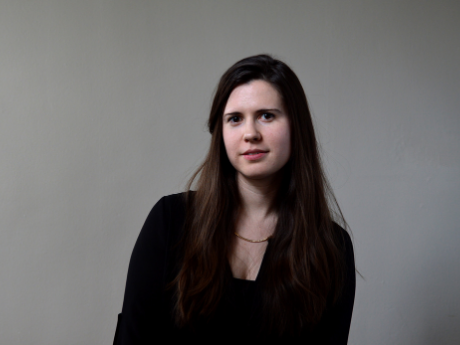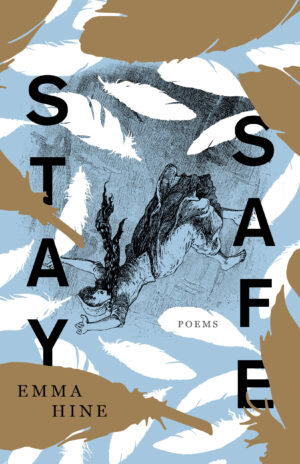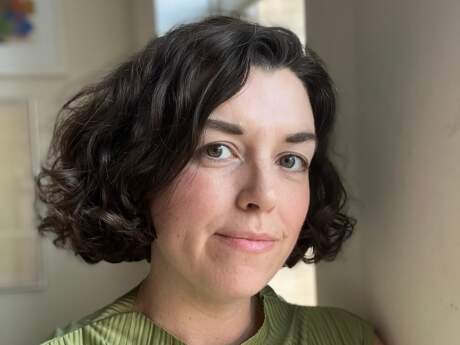In Their Own Words
Emma Hine on “Don’t You See”

Don’t You See
Sometimes when I tell it they fall
and their parents find them twitching
like wrens on the flagstones, grieving
over wings that didn’t work. Oh well.
In other versions the children do better,
and rise with the boy above town
still dressed for sleep, while their shadows
dive across the roofs below.
In the towns that this boy visits,
the people are afraid of geese—
of looking up at high dark shapes
that might be nightgowned children
flying away. In some towns, the boy
is not even a boy at all, but a goose
in search of a flock. They say
he’s living on an island where winter
never comes. That’s where he takes
the children. They nest in the dunes
and are only afraid of the ticking sound
of the clock, which the boy says
was swallowed long ago by a creature
that swam up from the depths. Back home
their parents would point at the moon
and say that everyone falls asleep
under the same sky. On the island
they learn that everyone stays awake
to the same clock. Don’t you see,
the clock says to the children,
you could stay in this place forever.
Don’t you see,
the clocks say to their families,
this is the beginning of a very long time.
From Stay Safe (Sarabande, 2021). Reprinted with the permission of the author. All rights reserved.
On “Don't You See”
This is the first poem in Stay Safe. I didn’t grow up particularly enamored with Peter Pan, but I can’t think of anything more compellingly symbolic than a monster with a clock in its belly circling an island of perpetual children. Stay Safe is, in many ways, a book about the fear of grief—and, therefore, the fear of growing up, of first being a child lost and then of losing a child or someone else precious. Throughout the book I’m interested in siblings, in childhood, in the ways storytelling and family history can morph across generations, and these recurring obsessions made me want to begin with this distortion of a story that has been told and retold enough times to achieve fairy tale–level. The poem that follows this one in the collection is about reckless sisters, and I hope that “Don’t You See” sets the stage for multiple understandings of recklessness: the speaker as a teller of others’ adventures, the speaker as the child taking risks, the speaker as the careful one who waits at home and grieves. I remember riding the elevator to work the morning I drafted the final lines here, a little dizzy with the realization that, through this image of the clock, I’d hit on something that felt like my greatest fear.



